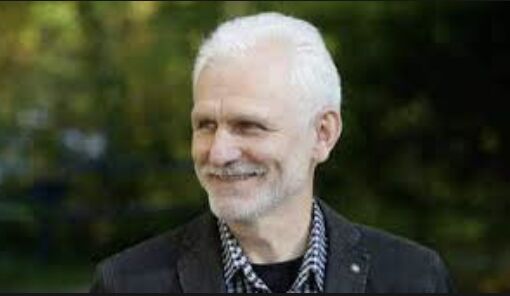Nobel Peace Prize Laureate Ales Bialiatski Placed in Solitary Confinement: Belarus' Brutal Crackdown on Human Rights
Nobel Peace Prize laureate Ales Bialiatski placed in solitary confinement in Belarus prison, facing tougher conditions and denied access to lawyer, as human rights concerns continue in the country.
- Nobel Peace Prize laureate and activist Ales Bialiatski has been placed in solitary confinement at a prison in Belarus, according to his wife Natalia Pinchuk. Despite his chronic illnesses, the 61-year-old's prison conditions have been toughened, with authorities not allowing him to meet with his lawyer following his transfer over alleged disciplinary violations.
Nobel Peace Prize laureate and activist Ales Bialiatski has been transferred to solitary confinement at his prison in Belarus, his wife said. She said effectively it's a prison within a prison & he was not allowed meet with his lawyers.https://t.co/pFDojteSki
— Lucy Keaveney (@Luighseach) November 7, 2023
Bialiatski, a top human rights advocate in Belarus and one of the winners of the 2022 Nobel Peace Prize, was convicted in March on charges of financing actions violating public order and smuggling, which he denied. He has been serving his sentence at a prison colony in Gorki known for its mistreatment of inmates. Pinchuk described the prison as a "conveyor belt for tormenting political prisoners" and criticized the Belarusian authorities for their brutal repression and disregard for international norms. Pavel Sapelka, a representative from the Human Rights Center Viasna, stated that Bialiatski's transfer to solitary confinement resulted in stricter conditions that could affect his access to walks, meals, and deliveries.
Sapelka also revealed that Belarus currently has 1,462 political prisoners, with authorities blocking access to lawyers and maintaining an information blackout. The arrests of Bialiatski and his colleagues came in response to protests following the contested 2020 election, which extended President Alexander Lukashenko's rule. Lukashenko, who has been in power since 1994, is backed by Russian President Vladimir Putin and has faced widespread criticism for his authoritarian regime. Bialiatski shared the Nobel Peace Prize with Memorial, a Russian human rights group, and the Ukrainian Center for Civil Liberties. Belarusian authorities have branded Bialiatski's organization as an "extremist organization." The transfer to solitary confinement marks a significant tightening of conditions for Bialiatski, highlighting the ongoing human rights concerns in Belarus.




